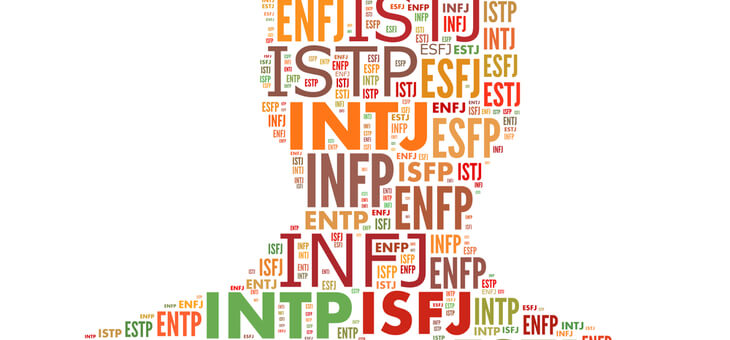Do you know your personality type? The Myers-Briggs Type Indicator (MBTI) is one of the most popular personality assessments out there. It’s an introspective questionnaire that delves into differing psychological preferences in how people perceive the world and make decisions.
The test attempts to determine where you stand in four categories: introversion or extraversion, sensing or intuition, thinking or feeling, judging or perceiving. One letter from each category is then taken to produce a four-letter test result, such as ‘INFJ’ or ‘ENFP’.
Of the possible 16 different types, INFJs are the rarest of them all.
Here’s everything you need to know about this complex personality, from strengths and weaknesses to dating and career tips.
The INFJ personality type
INFJ stands for introverted, intuitive, feeling, and judging. Only 1 to 3 per cent of the population are classified as this personality type.
INFJs tend to be introverted and rely on their intuition rather than their senses to gather information. Those who lean towards intuition tend to be out-of-the-box thinkers who consider what something could be, rather than just what something is.
Of course, intuitive people use their senses as well, because all of our bodies and brains are designed to do that, but they’re interested in more than just what their senses tell them.
They also often make decisions from what they’re feeling rather than using logic. People with the feeling trait follow their hearts and emotions – sometimes without even realising it.
One review showed 65 per cent of those with the feeling trait said they mostly listen to their hearts when making important choices, compared to just 7 per cent of those with the thinking trait.
The final letter (J) shows us they prefer to live with more structure and like to stick to schedules as opposed to allowing life to be flexible and spontaneous
Read: Your diet ‘personality type’ could hold the key to weight-loss success
Key personality traits
Thoughtful: INFJs are typically known for being helpful and considerate people. They’re often compassionate and able to form strong relationships with those they trust. Their empathy and understanding make them great friends, but they certainly aren’t pushovers. They have deeply held beliefs and an ability to act decisively to get what they want.
Helpful: while they are introverted by nature, people with this personality type can form strong, meaningful connections with other people. They enjoy helping others, but they also need time and space to recharge.
Idealistic: INFJs are sometimes referred to as the ‘Advocate’ as they have a unique ability to translate their idealism into action. They don’t just dream about changing the world – they make it happen.
Unique: being the rarest Myers-Briggs type of all certainly makes for a unique person. INFJs are far from ordinary, with a special combination of qualities that gives them a distinct versatility in different situations. And while they are versatile, they always try to make thoughtful decisions and are guided by a strong moral compass.
Organised: people with this personality type like to exert control by planning, organising, and making decisions as early as possible.
Complex: when making decisions, INFJs place a greater emphasis on their emotions over objective facts. But this doesn’t mean they see the world through rose-coloured glasses. They are known for being able to balance emotions with logic, making them critical thinkers with a deep sense of integrity.
Common strengths:
- honest
- considerate
- warm
- good communicators
- supportive
- have high integrity.
Common weaknesses:
- sensitive to criticism (real or perceived)
- can be hesitant to open up at first
- may have unrealistically high standards
- perfectionism
- lack of assertiveness.
Read: Your pet may predict your personality
INFJs in relationships
Many people with this personality type take their relationships very seriously. INFJs often have high standards, which can be heightened by the fact that they tend to be very concerned with integrity, honesty, insight, and passion.
Therapist De-Andrea Blaylock-Johnson explained to mindbodygreen, “In relationships, INFJs are sensitive to their partner’s needs, great listeners, and excellent communicators. They can, however, be hesitant to open up or make the first move due to their introverted nature. They can also be sensitive to criticism and conflict, as they often prefer to play peacemaker.”
Suitable careers
INFJs tend to thrive in careers that allow them to be creative and do meaningful work. They often do well in workplaces that are aligned with their values and ideals.
Some well-suited INFJ careers might include mental health professionals, teachers, yoga instructors, or any career where they can make connections and do meaningful work that helps others.
Read: Personality predicts how you will spend money in retirement
How to thrive as an INFJ
“Thriving happens when the INFJ has time for self-reflection and contemplation,” clinical psychologist Dr Kristina Hallett told mindbodygreen.
Self-care practices such as meditation, yoga, time in nature, and alone time are all beneficial for this personality type.
Everybody wants to live a life that’s aligned with their ideals. So, while INFJs tend to prefer to avoid conflict and keep the peace, Dr Hallett says they are willing to be direct and engage in conflict when it comes to causes or values they believe in – often armed with strong logic to back up their position.
“Being so creative, they’ll also feel their best when they have outlets for that creativity. Similarly, their intuition is important to them, so they thrive when they can not only trust it but look at it from a compassionate, objective stance. An orderly environment never hurts either,” Dr Hallett adds.
Do you know your personality type? Do you believe that people can really be divided up into 16 categories? Share your thoughts in the comments section below.
If you enjoy our content, don’t keep it to yourself. Share our free eNews with your friends and encourage them to sign up.

